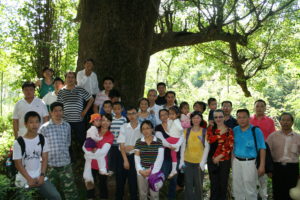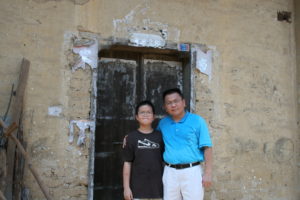Project One
Adam Xu
There are many benefits from Affirmative Action, people are given opportunities that their grandparents and great-grandparents could only dream of. It helps bring diversity to schools and workplaces, and it gives hope to millions that they can have a better future. I however, believe that we live in a meritocracy, that only the people that are proven to be qualified should receive positions. I have felt this way ever since my family took a vacation to china one summer.
The year was 2010 and it was a hot and humid day. I woke up feeling groggy and rubbing my eyes. I was a little disoriented, but as I scanned the tiny compartment my family was squeezed into, I remembered where we were. We’re taking a train to my father’s hometown in Jiangxi province, where the average family made around $5,000 a year. When the train finally arrived at the station, we met up with some distant relative who was going to take us to my dad’s village. We got into his old and rusty van and I fell right back asleep.
When we arrived at the village, the first thing I thought about were my jeans. Why did I have to wear jeans? Jiangxi is located in southeast China and it is hot and humid. My pants stuck to my legs, and I was miserable. The village wasn’t much: a couple of stone and mud houses scattered throughout a valley between two stout mountains. Dirt roads connected some of the buildings like a dusty vine. There were tall, green trees everywhere, which was a sharp contrast to the massive, industrial cities I was used to. The air, while thick and humid, was cleaner and clearer than in cities like Beijing.The nature around us, while beautiful, only made my mood worse. As we began walking around meeting my father’s old friends and relatives, swarms of mosquitoes began attacking me. The hellspawn feasted on my arms and neck. Maybe jeans were a good idea after all.
We met up with my relatives who were very welcoming. I watched cartoons on an old T.V. with my cousins while my aunts made us a large meal with stir-fried veggies and pork. When things had settled down a little, my father called for me and my sister. He told us that he wanted to show us something. We left the family gathering and began walking up one of the mountains and I was very annoyed. The swarms of bugs along with the heat were unbearable. All I could think about was my time with my Uncle in Shenzhen, one of the newest and most developed cities in China. My uncle is very wealthy, he lives in a penthouse on the 43rd floor of a skyscraper. I thought about all the frosty ice cream we could eat, the brand new TV we could watch, the brisk air-conditioned living room we could rest in, and the delicious street food on every corner. However, I was stuck in the middle of a poor Chinese village, hot and itchy, following my dad to nowhere.
After nearly 45 minutes of climbing, my dad tells us, “Hang in there kids, we’re almost there.” I was too angry and miserable to respond. We approached an old stone building that was very weathered. The was building was only the size of a small classroom back in the U.S.. The floors were not carpeted or tiled but consisted of dirt and clay.
“What is this?” I asked in annoyance, “Why did we climb all this way to look at this shed?” My dad stared at the rubble and replied quietly,
“This is where I was born.”
I was speechless. The rubble that stood before me was just a glimpse of the childhood my father had experienced, it was miles away from the village and had no plumbing or electricity but only a small spring nearby. The closest school was a two hour walk away from his home and the nearest hospital was hundreds of kilometers away.
From that day on I saw my dad in a new light, I began to understand why he pushed me so hard. Growing up in such conditions could not have been easy especially with six younger siblings. I now knew that every time he assigned me extracurricular math homework, every time he made me stay up to read books on history, and every hour he sat me in front of a piano was because he did not have access to these resources when he was a child. I began to understand that because of my dad’s humble beginnings, his expectations for me were greater.
When my dad was younger, there were heavy regulations on moving within China. The government was afraid that there would be mass urbanization because rural areas were extremely poor and everyone would flock to major cities to look for work. This however, prevented rural students to attend university. However, in the 1970’s the president of China passed a lottery each year for a couple provinces to allow all students to take the gaokao (the Chinese college acceptance test) and go to school. When my dad was only 16 his province was chosen and he was given a chance. He got the highest score on this test in the province of Jangxi and was admitted to Wuhan University of Technology and Engineering where he completed his masters and undergrad in 5 years. He then went on to pursue a PHD from Tsinghua University in Beijing, one of the most prestigious engineering schools in the world and became the youngest professor in the school history at 27.
My father’s stories taught me that it does not matter where you start your life or what struggles you have to face, that with hard work and dedication, anyone can be great. Here in the U.S. there are no regulations saying certain people cannot go to college, everyone has easy access to a free public education. While it is obvious to say that some people have it way harder than others, at the end of the day universities and workplaces should not give preferential treatment to people on the basis of their skin but to people who have merit.

